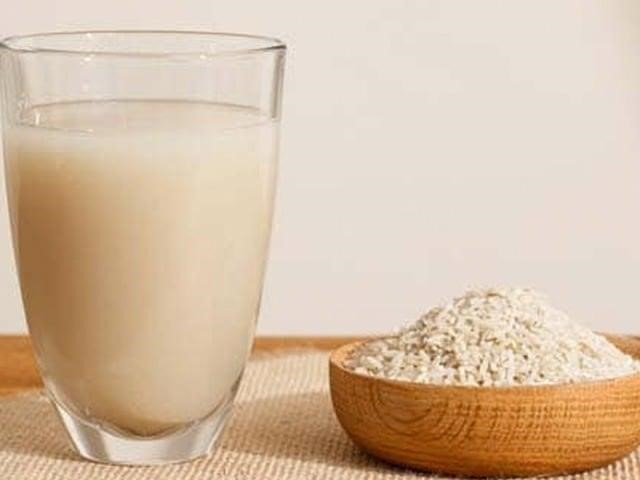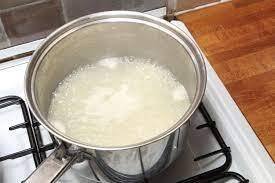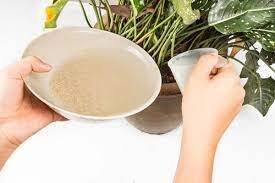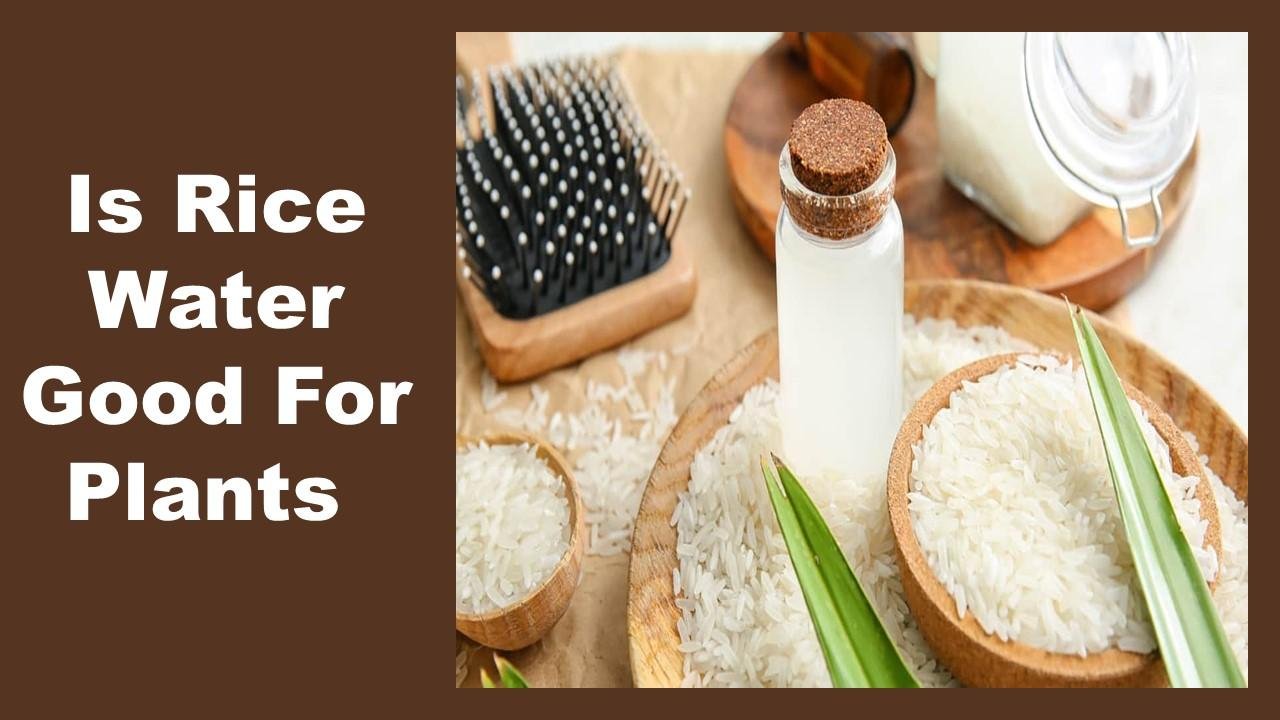Is Rice Water Good For Plants: An Amazing Natural Fertilizer
Are you guys aware of rice water for plants? Do you know about its benefits? Is rice water good for plants? In the beginning itself, we raised so many questions. Through this article, you will get clear answers to these questions. Also, this article will guide you on how to make rice water and all.
You guys doubt in mind if a byproduct turns into a natural fertiliser. The rice water byproduct has many minerals and vitamins that promote plant health. Let’s discuss more about rice water good for plants, rice water plants, come with me.
What is rice water?
Rice water is the left after cooking rice and is starchy water. It is a well-known feed for millions every day. It can be obtained by draining boiled rice. It is a kitchen by-product containing nutrients to fertilize plants, containing vitamins, and minerals. It contains different compounds and fatty acids, which gives it the flavour. So, rice water is the starch water for plants.

How to make rice water for plants
Before going for a detailed view of the question: is rice water good for plants? , we have to clearly understand how to make nutrient rich water for plants.
Rice water can be obtained by the following two methods:
1. Washing or soaking
It is the quickest way of obtaining rice water as it only needs to put rice into some water to soak.
Steps:
- Take a half cup of uncooked rice
- Place in a small bowl
- Pour 2-3 cups of water into the bowl
- For 2-3 minutes, rinse the rice thoroughly
- Leave it for 30-45 minutes to soak
- Then, stir the water to agitate and mix the settled nutrients
- Then, strain the rice water into a clean vessel

2. Boiling
Steps:
- Take a half cup of uncooked rice
- Place it on a normal rice cooking pot
- Then, stir properly
- Put the cooking pot on a medium heat
- Boil for 30-45 minutes
- Then, strain the rice water into a clean vessel.
If you find that the rice water is thick, add water to make it thin. The rice water obtained by this method has more nutrients than that obtained from washing. This occurs because heat from boiling happens to leach more nutrients from rice into water.

How to make fermented rice water for plants
Till now, we discussed how to make rice water from plants, now, we are going to discuss how to make the most effective soil inoculant, fermented rice water for plants. It is most beneficial because it contains beneficial bacteria which stimulate growth.
- Take spoons of cooked rice place on a jar and fill with water just above it. Either you can directly ferment the washed rice water without the cooked rice. Then, the final product becomes less thick than the cooked rice.
- Then, cover the vessel using cheesecloth and keep it on a darker spot for 1-2 weeks.
- You can see some fungi in the colour, black, brown, or orange grown on the surface of it, you can discard it and start a new one.
- Then, after it gets fermented, filter and dilute it and apply the water to the plants periodically.
- Note that you do not apply it in pure form as it will encrust on the soil surface.
Benefits of fermented rice water for plants
- The bacteria forming lactic acid ferment the solution and they induce hormones which help in plant growth
- They release antimicrobial substances which suppress the growth of harmful microbes.
So, now, you are anxious to know if is starch water good for plants
Is rice water good for plants?: Uses of starch water for plants
Yes, absolutely rice water is good for plants. It helps in growth-stimulating properties to flowering. Let’s discuss more about the uses of rice water.
- As fertiliser
Rice water as fertiliser contains a significant amount of NPK fertiliser, micro-minerals, amino acids and vitamins which enhance plant growth.
2. Flower booster
One of the uses of rice water is that it helps in plant blooming. The dissolved nutrients in milky white water help in assisting the flowering.
3. Pest repellant
The fermented rice water and other rice by-products ( rice bran) produce organic acids and phenols which act as insect repellants.
4. Root promoter
Then, the next one among rice water uses is especially the use of rice water for orchids. Orchids are plants which demand to propagate and cultivate. When the orchid plants are treated with rice water, they, show an increase in shoot length and numbers.
5. Microbial stimulator
When we apply rice water to plants, the indirect role it plays is the microbial population in the soil increases by adding it and it promotes root growth.
6. In succulents
The next use for rice water is application on succulents. When we mist the succulents with rice water, it provides benefits by avoiding overusing water and causing problems associated with soil.

7. Promote seed germination
Applying rice water to seeds enhances the germination rate and supports the early stage of plant growth.
8. Cost-effective
Using rice water is a sustainable way of enhancing plant growth without depending more on synthetic fertilizers.
9. Water conservation
It helps in the retention of water in the soil and helps in assisting the plants in times of drought.
10. Soil conditioning
It helps in enhancing the soil structure and in increasing the microbial activity and also gives a favourable environment for plant roots.
So, now you have an idea about rice water uses.
Methods for watering plants with rice water
Now, that we discussed is rice water good for plants, we are going to discuss the different methods of watering plants with rice water.
- Misting
One of the most convenient ways to apply rice water in plants is the misting. Fill the hand spray with water and mist daily on your house plants. Then, the nutrients dissolved can be directly absorbed through the foliage. It is the best way to water plants with rice water in plants like orchids, they absorb nutrients and water in the leaves and from their aerial roots.
- Bottom watering
When the pot seems to dry, take a bucket filled with the starchy mixture and dip the entire pot or half of it in the mixture. Bubbles will come and stop forming when the pot is completely submerged under the water, while, the half-filled container has only less liquid after the medium takes how much water it needs.
- Drenching
It is executed in the way that watering plants with rice water over the soil. Simply water the rice water until you find the excess water is coming.
Let us look at a table containing plants and the method of watering the plants
| Plant | Watering method |
| Succulents | Misting |
| Indoor plants | Misting, Top watering, Bottom watering |
| Garden plants | Top watering, soil application via sprayers |
How often to use rice water for plants?
You are anxious about the question: how often to use rice water for plants? The exact figure is not yet known. Research explains that fermented rice water should be applied on watering time. Generally, we apply rice water once a week is said to be good at the starting point. We have to monitor the plant’s response and change the timings according to environmental conditions.
Plants like rice water
There are some plants which show promising results in the application of starch water for plants. Let’s discuss:
- Mustard: Mustard plants will become taller, get larger leaves and will have higher biomass by the application of rice water.
- Tomato: Tomato plants watered with rice water will give a taller plant and heavier fruits than distilled water.
- Eggplant: When watering the eggplant with 750 ml of rice water, supplement with compost or earthworm castings will give maximum yield.
- Chinese flowering cabbage: Leaves will expand and more nutrients will be stored by the application of water at 3: 1 ratio(water: unfermented rice water).
- Desert rose: The succulent desert rose or Adenium, can bloom heavily by the usage of rice water.
- Orchids: They will directly catch nutrients and water from their leaves and hygroscopic roots from rice water and help to promote their growth.
- Mushrooms: We know that mushroom is not a plant, but they will benefit from the application of rice water. Oyster and shiitake mushrooms can grow and yield the best quality with the application of rice water.
Precautions taken care for using rice water
- Ensure that the water is at ambient or room temperature, so that, it doesn’t kill the bacteria in the soil or harm the plant. It is applicable only when we use boiled rice.
- Overwatering should be avoided. Because it leads to root rot and yellowing of the plant leaves.
- Prefer the bottom watering method, to ensure that the plant gets the right amount of water for optimal growth.
Conclusion
Now, you guys have an idea about the fact: is rice water good for plants? Yes, I know you guys were shocked by knowing that a by-product is good for plants because of its high nutrient content. A cost-effective method of applying as a fertilizer, a byproduct having a high amount of starch, vitamins, and nutrients.
So, if you guys, made cooked rice, strained the by-product and helped the plant for its growth.

